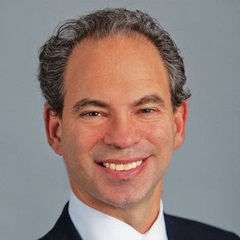CEO Column
February 10, 2022
 Are you glad January is over? I certainly am.
Are you glad January is over? I certainly am.
The omicron variant caused record-setting case levels in the United States and Canada, and although many cases were mild, particularly for those who were vaccinated, it was highly disruptive and concerning. The industry began to experience staff shortages in solid waste and sanitation departments (again!) starting in late December, and it became a major problem in many municipalities and at many haulers in January.
The national media picked up on the “perfect storm” of extra holiday-related trash and recyclables and the collection worker shortage, which combined to cause collection delays and operational changes in some communities. SWANA played an important role educating the media – and Americans – about why their trash wasn’t being collected and urged a little patience and more funding for municipal systems. Fortunately, with Omicron well past its peak, we are not seeing new reports of collection delays.
This has allowed SWANA to focus on other important items. For example, last week the U.S. Senate held a hearing on proposed recycling and composting legislation. SWANA sent an alert about the hearing to the Core Advocacy Group and is in contact with Senate staff about next steps. This week, SWANA is participating in an important meeting with Office of Management and Budget (OMB) concerning an EPA proposal to designate two PFAS compounds as hazardous substances under the Superfund law. This proposal could have many unintended consequences, including delaying the cleanup of polluted sites, and would increase leachate treatment costs for landfills and their customers.
SWANA’s Board committees are meeting in preparation for the Board of Directors’ meeting on March 20-21. The Planning and Membership Committee met last week and discussed the status of our draft Strategic Plan, while the Finance Committee met earlier this week to discuss SWANA’s financial performance and outlook. The Policy Committee meets later this month. If you are on one of these committees, thank you.
SWANA is holding a Regional Training Center (RTC) in Las Vegas this week, and more than 70 students have registered for one of the courses. The RTC features the new and improved MOLO, Zero Waste, and the Transfer Station Management course. If you or a member of your team couldn’t make it to Las Vegas – no worries – SWANA is holding a Training Center at SOAR in Kansas City next month. In addition to the MOLO and Zero Waste courses, we will offering Integrated Solid Waste Management (ISWM), Landfill Gas Operations and Maintenance, and the Manager of Collection Systems courses.
SWANA is excited that SOAR will take place as scheduled as an in-person event on March 21-24, and we hope that you will join us in Kansas City. With Omicron in decline, we anticipate many of you to register in the next few weeks. Based on our experience at WASTECON in Orlando, we recognize not everyone is quite ready to attend a solid waste conference. However, everyone who attended WASTECON was glad they were there – and appreciated the timely education, great networking opportunities, and exhibit hall offering solutions to many of your most pressing solid waste problems. Simply put, it was great being together again, “talking trash.” I know SWANA Board members are excited to meet again in person, and if you have not already done so, I hope you’ll register for SOAR today and join us in Kansas City.
I am also excited that many SWANA chapters will be holding conferences and other events this Spring. We know it has been challenging over the past few years and expect a surge of participants at these events. Make sure you sign them up to be members, engage with them, and tell them about our Young Professionals program!
SWANA is recognized as the leading professional association for the waste sector in the United States and Canada. We have earned that reputation during the pandemic, including last month. It is time to gather together again – at SOAR, WASTECON, and chapter events, and plan a more sustainable future for our children and grandchildren.






